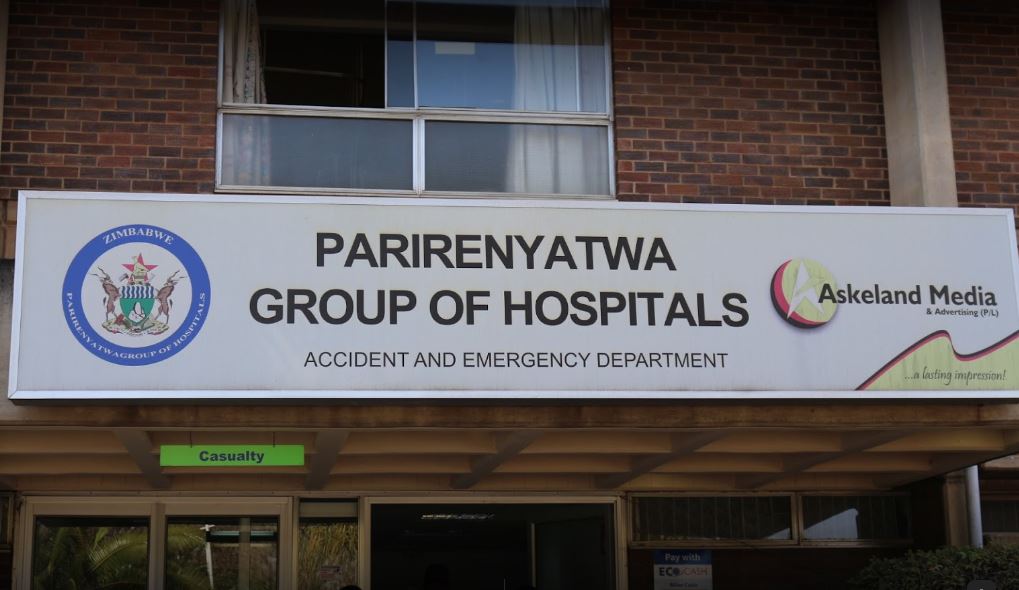The Parliamentary Portfolio Committee on Health and Child Care has expressed serious concerns about the state of cancer treatment and noncommunicable disease (NCD) management following a fact-finding visit to six major hospitals across the country, which remain under-equipped to meet rising demand.
The committee’s tour of six hospitals – Mpilo Central Hospital in Bulawayo, Parirenyatwa Group of Hospitals in Harare, Gweru General Hospital, Makumbe District Hospital, Karanda Hospital, and Bindura General Hospital – painted a grim picture of Zimbabwe’s healthcare system.
These hospitals serve as crucial referral centers for surrounding districts and play a pivotal role in managing cancer and NCDs but are affected by several systemic issues that hamper effective healthcare delivery, including shortages in medical equipment, human resources and infrastructure.
In its report on the Prevention and Management of NCDs and cancer, the committee said there is urgent need for action to address the growing burden of NCDs, which account for 36 percent of all deaths in Zimbabwe.
“Cardiovascular diseases contribute 13 percent, cancers nine percent, diabetes five percent, chronic respiratory diseases two percent and other NCDs seven percent,” said the committee.
The mortality of these NCDs was worsened by major risk factors such as tobacco use, physical inactivity, unhealthy diets and harmful alcohol use, which often led to “high blood pressure, obesity, hyperglycemia and hyperlipidemia.”
The committee also noted a troubling pattern of “poor health seeking behaviours particularly among men,” leading many patients to seek medical treatment only at advanced stages of their diseases yet for cancer, early detection significantly improves treatment outcomes.
“Moreover, radiotherapy and oncology services were available at Parirenyatwa and Mpilo Hospitals, but the diagnosis of cancers was often delayed, with 80 to 90 percent of patients presenting at advanced stages.”
Additionally, this “untenable situation” was aggravated by the critical shortage of specialists, including pathologists, radiologists and oncologists plus advanced imaging facilities like Computed Tomography (CT) and Magnetic Resonance Imaging (MRI) that were largely unavailable in public hospitals, the committee added.
On infrastructure, the committee observed that both Mpilo and Parirenyatwa Central Hospitals, critical radiotherapy machines, were ‘dead’ since 2021.
“At Parirenyatwa, one of the two brachytherapy machines was down due to the exhaustion of Cobalt 60 radioactive sources, and needed to be replenished. Additionally, the linear accelerators, essential for targeted cancer treatments, had been non-functional for the past two years, severely impacting the hospital’s ability to provide comprehensive cancer care,” said the committee
At Mpilo Central Hospital, the situation was similarly dire, with only seven out of 14 renal treatment machines operational, reducing the hospital’s capacity to provide necessary dialysis treatments.
“The mammogram machine at Mpilo, which was donated by the National AIDS Council (NAC) to aid in breast cancer screening, was out of service, thereby halting vital early detection processes for breast cancer, a major concern given the high prevalence of late- stage cancer diagnoses,” said the committee.
“Further to that, the mobile X-ray unit at Mpilo was also down, causing significant delays in surgical procedures for children, who require timely diagnostic imaging for accurate and effective treatment. More so, although the laboratory services were fairly equipped with essential diagnostic tools, they suffered from an erratic supply and availability of key reagents,” observed the committee.
This inconsistency disrupted routine diagnostic testing and delayed critical medical investigations, undermining the overall efficiency of the hospital’s healthcare delivery system.
During its tour, the Committee was made aware of high level of skills flight to green pastures in the hospitals.
“Most health facilities were operating below optimal levels due to significant shortages of key personnel such as radiographers, medical physicists, and nuclear medicine physicians. This shortage of skilled staff was exacerbated by the increased workload and the rapid advancements in medical fields, which necessitated continuous upskilling of health professionals,” the committee said.
“However, limited funding restricted opportunities for professional development, leaving many healthcare workers without the necessary training to keep pace with new technologies and treatment protocols.”
The committee also noted shortage of skilled personnel was compounded by obsolete medical infrastructure, further hampering the effective delivery of healthcare services.
Another observation made was the ‘high’ out-of-pocket healthcare expenses incurred by patients who often had to purchase additional materials, such as catheters, further increasing the financial burden on families while the committee noted the user fee policy had affected the capacity of health facilities to generate revenue to support their operations.
In light of the challenges identified during their visits, the committee recommended that the Ministry of Health and Child Care should establish binding contracts with suppliers for the maintenance of health equipment, making sure machines are kept in working order and local personnel are adequately trained.
“A national policy should be developed to retain key medical staff, particularly radiographers, oncologists, and nurses. This policy should include competitive salaries and professional development opportunities,” said the committee.
The committee also recommended a roadmap for decentralising cancer treatment facilities to district hospitals, including the procurement of mobile clinics and the capacitation of primary healthcare centres to offer these services.
The committee also suggested exploring the potential of traditional medicines in cancer and NCD treatment through research in collaboration with relevant ministries and universities.
The committee also called for the creation of palliative care centers in all hospitals to provide better support for patients with terminal cancers and other advanced NCDs.

